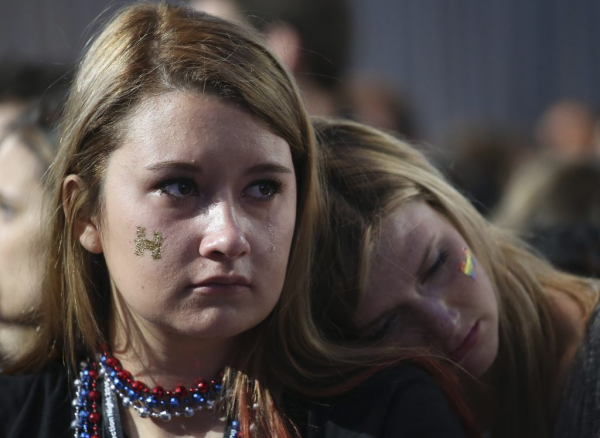NY state senate passes HALT law
On March 18, 2021, the New York state senate passed the Humane Alternatives to Long Term (HALT) Solitary Confinement Act. The Act will limit the use of solitary confinement in jails and prisons and replace them with more humane rehabilitative alternatives. The legislation was sponsored by Julia Salazar, the New York senator for the 18th district.
According to prisonpolicy.org, over 800,000 inmates are held in some form of isolation on any given day. A study proves that there are many psychological consequences of solitary confinement including anxiety, depression, and hallucinations.
According to The Journal of the American Academy of Psychiatry and Law, psychological effects of solitary confinement can include anger, cognitive disturbances, perceptual distortions, obsessive thoughts, paranoia, and psychosis. The stress, lack of meaningful social contact, and unstructured days can exacerbate symptoms of mental illness or provoke recurrence.
“In the constitution, we prohibit cruel and unusual punishment and I think the argument can be made that locking someone up in isolation for 23 hours a day is cruel and unusual punishment.
Even though I am not an expert, as humans we are social beings, and even though some of us claim not to, we all crave human contact. Being alone for several hours a day can literally drive people mad and when inmates are released they are leaving prison with greater psychological trauma than when they were first incarcerated. Our penal system claims to rehabilitate and the question needs to be asked, is solitary confinement helping with rehabilitation,” said Mr.Tenney, a psychology teacher at Naugatuck High School.
Korey Wise was the only one of the Exonerated 5 to serve his sentence in an adult prison. As a 16-year-old boy, Wise was tried as an adult and spent a total of 12 years behind bars. A majority of his sentence was spent in solitary confinement for his own protection. Wise was often subject to abuse from other inmates and even corrections officers.
Coupled with his other disabilities, solitary confinement was extremely rough on him. Wise suffered from severe hallucinations where he thought he was having conversations with his mother.
Similar to Korey Wise, Kalief Browder, 16, spent over 700 days of his 1,000-day sentence in solitary confinement. In 2015, two years after his release from Rikers Island in New York, he hanged himself outside his bedroom window. Browder struggled to assimilate back into society and he battled with mental health issues that were induced by solitary confinement.
Unfortunately, Browder and Wise were not the first or last people to suffer the negative effects of solitary confinement.
In 2019, Layleen Polanco, a 27-year-old, transgender woman of color died in solitary confinement in Rikers Island. Polanco was not given medical care that could have saved her life after an epileptic seizure.
In the days before Polanco’s death, a few psychiatrists strongly opposed putting her into solitary confinement due to her history of seizures; their advice was ignored. The Department of Corrections used a policy of housing trans women separate from cis-gendered women in the general population to justify Layleen Polanco’s placement in solitary confinement.
The new legislation aims to do numerous things such as creating strict criteria for who can be placed in solitary confinement. Only inmates who have engaged in more serious acts of physical injury, forced sexual acts, extortion, coercion, inciting serious disturbance, procuring deadly weapons, or dangerous contraband can be placed in confinement.
Additionally, the legislation reduces the amount of time an inmate can be held in solitary confinement. According to nycaic.org, no person may be held in isolated confinement for more than 15 consecutive days or a total of 20 days within two months. Once an inmate has reached these limits, they must be released or diverted to the alternative Residential Rehabilitative Unit (RRU) with more out-of-cell time, programs, and therapy.
One of the most important parts of the legislation bans special populations from any form of solitary confinement. Special populations are defined as inmates younger than 21, older than 55, anyone with a physical, mental, or medical disability, as well as pregnant women, new mothers, or anyone caring for a child while inside.
While New York state is the first to pass this act, they certainly should not be the last. Every state in the country needs to eliminate solitary confinement and find other alternatives to ensure that inmates are rehabilitated and can successfully reintegrate into society. Some inmates that are released tend to recidivate and this should not be the case. There should be extremely low recidivism rates and that starts with more humane alternatives to solitary confinement.

I am a senior in Journalism 3. I plan to be a neurologist and I decided to take journalism again because I love writing about topics I'm passionate about...








